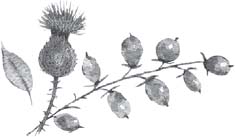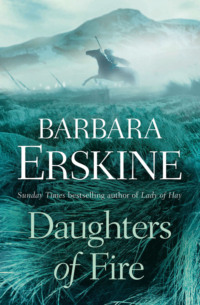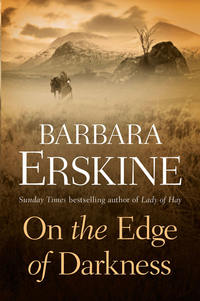
Полная версия
The Ghost Tree: Gripping historical fiction from the Sunday Times Bestseller
She gave a crow of laughter. ‘You’ve got the yaya disease, boy. You don’t have to panic now I seen you. You not got the great pox. I can fix this, no problem.’ She leaned closer, inspecting his wounds. ‘You been scrubbing these sores?’
Tom nodded miserably.
‘That’s good.’ She let him go and studied his face. ‘Back where I come from, that is how we cure this disease. We scratch our children’s skin and rub in the illness, then they get it, but not very badly, and they never get it again. But older people, who haven’t had that chance, we scrub the berries!’ she chuckled. ‘Just like you did. All the dirt and the disease comes away and your own good blood washes it out of you. I will give you medicine and I will give you ointment – I make it myself from herbs and from ground seashells – and you will be as good as new, boy. And you won’t get it again. You’re a strong child, yes?’ She had a wonderful warm smile, he realised, her heavy black face lit with kindness.
‘Thank you, ma’am.’
But her face had sharpened. Once again she drew him into the thin ray of sunshine that was finding its way through the doorway so that it shone on his face. ‘You one of us, boy?’
He hesitated, confused. ‘I don’t understand.’
‘Yes, you one of us,’ she murmured, half to herself. ‘You see the dead folk; you feel their loneliness and their pain. That’s a hard path for you. I not surprised you go make enemies; people sense you a bit special.’ Her mouth widened into a broad smile. ‘You can help people – I don’t think you go be a doctor like me, but you not made for your king’s navy. Why you want to be an officer?’
Tom glanced out of the doorway towards the figure of George Murray, who was leaning against a palm tree, smoking his pipe, seemingly lost in thought. ‘My father arranged it,’ he replied reluctantly. ‘I didn’t want to be in the navy, but I quite like it now?’ He looked at her anxiously, his answer framed as a question as if he did not know if he was speaking the truth. It seemed important that this woman understood.
She smiled at him. ‘It will do for now. When you grow into a man you make decisions for yourself. Now you too open, too much trusting. You must learn to be safe from people, people who are alive and people who no longer here.’ She dropped his hand and moved back into the shadows of her house. ‘Go tuck your shirt in, boy, make yourself respectable for your officer. I’ll give you medicine to make you better and I’m going to give you something special that will protect you from evil which works in shadows. You know prayers, boy? You good Christian?’
‘Yes,’ he whispered.
‘Then I put Christian God and Blessed Virgin in my magic with my own special gods from my homeland who protect me and mine. That’ll give you much good and safety.’ She smiled again as she fumbled with the baskets on the shelf above her table. ‘What I give you, you put in the bottom of your belongings and you keep it safe and you leave it there with you all of your life, and then you give it to your children. You understand me, boy?’
As Tom trotted back to the harbour at George Murray’s side he was clutching a bag which contained a bottle of black, strong-smelling tincture, a pot of brown ointment and a carefully wrapped bundle. He had seen Lieutenant Murray dig into his own pocket for some coins with which he had paid the woman, who had swiftly squirrelled them away into the folds of her skirts before turning back to Tom and reaching out to make the sign of the cross on his forehead with her thumb. He had forced himself not to flinch away from her as he made his stammered thanks. He could feel some kind of strange power coming from her which left him scared and awed and, he knew it already, strengthened.
‘Thank you for bringing me here, sir,’ he ventured shyly.
‘I’ve done it before,’ Murray replied easily. ‘You’ve been lucky. It could have been the great pox, which can never be cured.’ He stopped suddenly. ‘Are we sure it was Farquhar who put the infected rags into your sea chest?’
Tom looked down at the dusty track and shuffled his feet. ‘I can’t be sure, sir. But he was the one who drew attention to it, who seemed to know about it, who hates me enough to do something like this.’ His voice faded.
‘We cannot punish him for something that is a mere suspicion, Tom.’
‘I know, sir.’
‘So, what do you suggest we do?’
‘Nothing, sir. It’s up to me to be more careful.’
‘We can move him to another watch.’
‘No, sir.’ Tom took a deep breath. ‘No, thank you, sir. It’s for me to learn to be careful and to learn to make a friend of him, if I can.’ He knew he sounded doubtful and he tried to straighten his back and firm his shoulders as he had seen the officers do.
Murray hid a smile. ‘We sail to Jamaica soon, Tom. I understand from the captain that you are due some shore leave when we arrive, to visit some of your father’s relatives, is that right?’
Tom bit his lip. ‘Does the captain know about me being ill, sir?’ he asked.
The lieutenant sighed. ‘He knows about everything that goes on on his ship.’
‘Yes, sir. I see, sir.’ Tom glanced at him. ‘Will he tell my father, sir?’
‘I very much doubt it. Why should he? You’re already on the road to recovery. You’ve been lucky, Tom. You’ve seen the best healer in these islands and, besides, what happened was not your fault.’ He hesitated. ‘Just watch yourself. Farquhar has a malicious streak. I’m keeping an eye on him, but I cannot be there every moment of the day. You need to be on your guard and you need to be able to deal with this situation.’ He looked down at the boy trotting beside him. ‘Be strong, Tom. You have it in you. Don’t be afraid to stand up to him.’
James Reid emailed Ruth a copy of the letter he proposed sending to Timothy. ‘It has come to our attention that the will forwarded to me purporting to come from your solicitor does not carry an authentic signature, neither has it been possible to contact the witnesses. It is a criminal offence to falsify …’ She glanced through the rest of it briefly. James demanded the return of any property Timothy had removed from Number 26 without delay, and threatened to send a copy of the letter to the police if that was not done.
She sat back, staring at her laptop. Perhaps they should send a holding letter first? Give Timothy a little time to return anything he had taken.
‘Ruth?’ It was Harriet on the phone. ‘How are you?’
‘I’m good.’ Ruth smiled. It was good to hear Hattie’s cheery voice. ‘I’m discovering lots of stuff about Thomas.’
‘Any mention of spirit guides?’
‘No, but he does seem to be showing signs of having appeared as a ghost a few times.’
‘Now, that is interesting.’ Harriet’s voice rose with excitement.
‘And one other thing you’ll be interested to hear: I’ve found a copy of Dion Fortune’s book Psychic Self-Defence amongst my mother’s books.’
‘Have you indeed. Listen, Ruthie. I was ringing because I’ve had an idea. I’ve got to come to Edinburgh to interview someone about SOE and check a few things in the library. Liz is lending me her car. I wondered if I could come on to see you the day before and perhaps have supper? Possibly stay the night? Would your friend Fin mind? We can catch up on everything then.’
It seemed like a plan.
19

Andrew Farquhar had hated Thomas from the first moment he had set eyes on him in that little rat hole of a gunroom on the ship. The boy seemed to have the knack of making friends, of being popular. Young as he was, he addressed the lieutenant and even the captain as an equal. Clearly there must be family connections of some sort. It gave Andrew enormous pleasure to set about planning all the petty revenges that would make Thomas miserable. He hadn’t intended to kill Robbie. That had been unfortunate, a prank aimed at upsetting the sanctimonious Thomas who had befriended the kid. That prank had gone sadly wrong, and thanks to Thomas he was caught and punished and humiliated.
It had been a petty triumph when he had the idea of stealing the infected rags from the squalor of the seamen’s quarters where he now found himself and stashing them in Thomas’s sea chest. He had found it unlocked once or twice over the months and spent time searching it, looking at the neat notebooks and pen boxes and brushes and combs, the pile of letters tied with ribbon that had come from his family, the presents his sisters had sent him via a merchant ship from London. Andrew hadn’t kept the items he filched, that would have been too easy. One pen, engraved with Thomas’s name that he knew had been a gift from his mother, he threw over the side in the dark of the night; the small penknife, a gift from Thomas’s father, he kept for two days then slid through a gap in the boards and heard with great satisfaction the small splash as it fell into the noxious bilge water in the hold.
The plan to infect him had worked, but instead of the death-sentence pox Andrew had hoped for, he had caught some disease which turned out to be curable, and even that small misery had misfired when Thomas had gone ashore and come back with bottles of medicine and a jar of ointment. When Andrew had next found the gunroom empty and crept over to look at Thomas’s sea chest, he had felt the cold waft of evil coming off it before he even touched it and he fled back to his own quarters. He had never gone near it again, but his hatred had grown, if anything, more entrenched.
Timothy threw the letter down on the table and looked up at his sister. For once he did not protest at the fact that she had opened something addressed to him. ‘So that’s it, then. We’ve been found out.’
‘No. He only says there’s a delay. Even if they suspect something, they can’t prove it.’ April glanced at him. ‘And we still have our trump card: the DNA. We can prove you’re the old man’s son.’
‘You really believe that will work?’
‘It will work,’ she said emphatically. ‘And that would at least give us half the house and half the stuff.’
‘Us? It will give me half the house,’ he said mildly. He gave a grim smile. ‘After all, it will prove you are not my sister.’
He looked away when he saw the ice-cold fury in her eyes. ‘Don’t even think you’re going to cut me out of my share,’ she said quietly. ‘It was all my idea and my planning. You haven’t the brains to tie your own shoelaces!’ The scorn in her voice was cutting.
He gave a small shrug of his shoulders. ‘It was me that sat with that old man for months.’
‘And why not? It’s not as if you had any other job.’ She stood up. ‘Now, what do we do with the silver and stuff?’
‘We’re going to deny having it, right?’
‘Of course.’ The tone was withering again. ‘They can prove nothing if they can’t find it.’ She put her hands on the table in front of him and leaned forward, right in his face. ‘What did you do with that box of muck?’
It was the first time she had asked. ‘I put it in the rubbish skip down the road, like you said.’ He didn’t meet her eye.
‘Good. Right. Now, we have to get everything out of here. We can smash up the pictures and burn them; they aren’t worth anything. The rest is easier to stash.’
‘I know where we can hide the stuff.’ His voice was quietly triumphant. ‘Somewhere they will never even think to look.’ Her casual dismissal of the pictures hurt. They were old and so probably valuable.
‘Where?’
‘Macdermott’s place in Cramond.’ He grinned.
She opened her mouth to protest, then sat down opposite him and stared at him hard. ‘Go on.’
‘When I was poking about there in the garden I came across an old shed behind the outbuildings. Looks as though no one has been in there for years. It’s full of spiderwebs and dead leaves. I can put it there.’
She thought for a moment. ‘It could work.’
‘Can you think of anywhere better? Short of chucking it in the Forth?’ His courage was coming back. ‘And you can’t exactly have a bonfire here, can you! Mr Nosy next door would want to know what you were doing and there would be forensic evidence, even if it was ashes.’
‘No, you’re right.’ She made up her mind. ‘Let’s load the car.’
‘I can’t do it in daylight.’
She hesitated. ‘We’ve got to risk it; we can’t risk keeping the stuff here in case the police come. We were stupid to use this address on the will, but we had to give them somewhere to contact us.’ She scowled. ‘Load the car then park it somewhere until it’s dark.’
Once her mind was made up, they were a team again.
The family visit had not gone as well as Tom had envisaged. The Tartar, having cruised north to Pensacola, turned to patrol southwards again and finally arrived in Jamaica, anchoring off Kingston. Leaving the ship, his chest carried ashore by one of the sailors and passed on to one of his cousin’s slaves, it was with some relief that he turned his back on the sea for a while.
If he had expected a hero’s welcome from his father’s cousin, he was sadly disappointed. She turned out to be an elderly lady, comfortable in her own world, with little interest in a fourteen-year-old boy. It was a huge relief to both of them when she announced that they were expecting a visitor. ‘Dr Butt,’ she told him. ‘I think he will be better suited to entertaining you, Thomas. I fear I have no conversation for a boy your age.’ She smiled that cold austere smile that he had so quickly grown to dislike. He had hoped to find the warmth and welcome here that the word family conjured in his mind. Her next sentence was like a slap in the face. ‘He can fill in the time by teaching you till you go back to your ship.’
Dr Butt, however, turned out to be an agreeable and affable man, recently appointed to the position of physician general to the island militia, who swept the lonely boy under his wing and took him back to his own house where Tom spent a most enjoyable time, studying, drawing, exploring the island and flirting with Dr Butt’s daughters, who helped him choose a tortoise to ship home as a gift for his mama in Bath.
It was to Dr Butt that he finally confided the story of his illness. The doctor examined the medicine the slave woman had given him and he nodded, sniffing the mixture and examining the faint scars left on Tom’s body. ‘Yaws,’ he said. ‘Horrible, but not fatal. It is incredible how clever some of these African women are. Obeah women, they call themselves. They practise the magic of their own religion. Some are genuine healers with far more knowledge than many of us so-called educated doctors.’ He smiled. ‘We could learn so much from them if we only let ourselves listen.’
Tom did not mention the strange doll the woman had given him, sensing the doctor would not be so approving of that. It was tucked in the bottom of his trunk, wrapped in a neckerchief. He could feel its power, but it didn’t frighten him; on the contrary, he knew it would somehow keep his belongings safer than any padlock.
It was with genuine regret that he prepared for his recall to the ship. Having packed his trunk and dispatched his last batch of letters home, he headed back to the harbour, hoping against hope that he would not find Andrew Farquhar waiting for him.
20

Timothy pulled the car under the trees where he had parked before, reached over to the passenger seat for his backpack and the large torch he had bought that afternoon, and let himself out into the cold night.
The air was heavy with moisture, a damp mist hanging low over the garden as he tiptoed across the grass at the side of the driveway. There were no cars parked outside the house and there was no sign of life. Perhaps there was no one at home.
On the face of it, this was a brilliant plan and he had sold it to April easily, but there were one or two snags he hadn’t mentioned, the first and most obvious being that he had not actually looked inside the shed. He didn’t know what sort of condition it was in and he had to find a way of freeing the door from its curtain of ivy and bindweed in such a way that there would be no trace of him afterwards. In his sack there were kitchen scissors and a large knife and some secateurs. He was pretty sure he could hack his way into the shed with those, but what to do to put it all back and restore it to its desolate appearance of never having been touched in fifty years was a problem he would have to solve when he got to it.
As his eyes grew used to the misty darkness he could see thin lines of light around the curtains drawn across the French doors at the back of the house out of which Ruth and Macdermott had appeared last time he had been here. He had no way of knowing Ruth was even still there, but it was she he pictured in the house. He waited for several seconds. The darkness made him feel safe. Even if she opened the doors and came out onto the lawn, she would not see him. He backed away. She wouldn’t be able to see the outbuildings from there anyway, screened as they were by a line of trees and shrubs. She could walk all the way down to the river, as she had done that evening with Macdermott, and she still wouldn’t see him.
The jungle area behind the garage looked even more wild and impenetrable in the cold beam of the torch. He surveyed it carefully. In daylight he had been able to see the shadow of the door behind the ivy. Now it was all black moving shapes and crawling stems. There was a sudden disturbance among the leaves and a blackbird shot out of its roost with a deafening shriek of alarm. He jumped back, his heart thudding with fright. Turning off the torch he waited, expecting to see lights coming from the direction of the house, expecting shouts and police sirens. There was nothing. The darkness fell back into silence.
It was a couple of minutes before he dared turn on the torch again.
The biggest mistake he had made, he realised very quickly, was not to bring gloves. He gave a grim smile. Obviously he wasn’t a seasoned crook or hiding his fingerprints would have been the first thing he thought of. And since he wasn’t a seasoned gardener either, it hadn’t occurred to him that nature would fight back, that the undergrowth would tear at his skin and be full of thorns.
He managed it in the end, freeing the door of everything but cobwebs, the rusty latch hanging off, the padlock that had once secured it dangling uselessly from its hasp. He gritted his teeth and pulled. The door didn’t move. He pulled again, careless of the blood dripping from his fingers and from the deep scratch across the back of his hand. He was sweating from his exertions, the cold seeping into his body now he had stopped, and he was exhausted. When the door resisted, he wanted to sit down and cry. He gripped the edge of the rotten boards once again dragging at it with the last of his strength and reluctantly it began to move. He pulled one more time and with a deafening squeak and groan of rusty hinges it opened. He was past caring if anyone had heard as at last he shone his torch inside.
The shed was a lean-to, mostly empty. In the far corner was an ancient mower, draped in rotting tarpaulin; there were broken rakes and spades leaning against the wall and a pile of ancient flower pots. The ground was beaten earth. He shone the torch upwards and saw the underside of the roof, some of it tiles, some rusty metal, all precariously balanced on split and sagging beams. It looked as if the slightest breath of wind would bring it down.
He bit his lip. It would do as a temporary hiding place but not for long. It was not secure and it was far from weatherproof. If the paintings were left in here for more than a few days they would be destroyed. He cursed again. He should have thought of bringing something waterproof to drape over everything. He shivered. He could not change his mind now. There was no plan B. His only option was to cart the stuff from the car, stack it in here, behind the mower, refasten the door and drape the ivy back into place as best he could. Once he was safely home in the warm and dry he could try and think of somewhere better to hide the stuff. He glanced towards the house. It was all in darkness. They must have gone to bed. He was amazed at the shot of jealousy and disgust that knifed through him at the thought of Ruth and that fat slob together.
Ruth was eating a bowl of breakfast muesli the following morning when there was a knock at the kitchen door. She froze, her spoon halfway to her mouth.
Slipping off the stool, she opened the door to a tall, lanky man with fiery red hair and bright blue eyes. ‘I’m Lachy.’ He held out his hand.
‘Lachy?’ She shook it, bewildered.
‘Did Finlay not mention I’d be coming to tidy the garden?’
He accepted a cup of coffee, and stood leaning on the sink as he sipped from it. ‘Have you heard from Finlay?’
‘No. I was going to text him to see if he had arrived safely.’
‘He’s not very good at keeping in touch when he’s on one of his research trips.’
She laughed. ‘You obviously know him very well.’
‘We go back a long way. I come in from time to time to keep an eye on things here. If I didn’t, Finlay would be lost in the jungle by now. The man doesn’t understand that things grow and when you cut them down they grow again.’ He laughed.
‘Isn’t that odd. You would think as a cook he would have a fantastic kitchen garden. There’s plenty of room here.’
He blew the steam off his coffee and took a sip. ‘Gardening needs to be a passion to keep on top of something like that. He hasn’t the time. And he knows someone who grows wonderful organic veggies for him.’
‘You?’
‘Me.’ He laughed again.
‘And is that your main job?’
‘No, I design software. That’s why I have to get out in the air sometimes. I have my allotment and I have this place to indulge my need of sun and wind and rain. Sun today, so I thought I’d rake up some of the leaves.’
‘And he pays you for all this?’ It was none of her business, but she was intrigued.
‘No. He offered, but I told him he couldn’t afford me! We keep it informal. My wage is the joy of being here. Besides, I like Fin. I bring my kids sometimes to play; they adore him.’
That was a side of Finlay she had never suspected.
Lachlan drained his cup and put it in the sink. ‘I will be on my way out then. If there’s anything you need, give me a shout or call me. Fin’s got my number on his corkboard over there. I’m very happy to come over. And don’t be afraid to explore the garden. It needs to be loved.’
She sat for a long time after he had let himself out. It was strangely reassuring to know there was someone there for her.
She had started building a timeline of Thomas’s life. The night before she had read a copy of the letter he had sent to his brother about his stay in Jamaica and how he had sent a tortoise to his mother. She wondered idly if the creature ever reached England safely and what Lady Buchan had thought about the strange animal destined to wander in her garden.
She picked up her pen. It was a year later. HMS Tartar was sailing north towards Florida on her regular patrol up and down the western seas. The sea was blue, a pod of dolphins leaping and diving under the bow of the ship, the wind steady from the north-west. She had discovered there were actual log books from the ship still in existence and online. The lieutenant had spotted the tell-tale signs of a storm on the horizon. She wondered at what point he would have made sure the captain knew. Was that when they would take in sail and batten down the hatches?
In the garden, Lachlan went on raking the leaves into piles ready to put them on the bonfire. Methodically he worked his way across the lawn, as usual lost in thought. It was a while before he noticed the trail of footprints in the long wet grass. They led from the front drive round the back of the garage and into the undergrowth behind the fir trees. Puzzled, he stared at them for several seconds, then he decided to follow them to see where they went. Leaning his rake against a tree, he ducked into the cold wet shadows.








